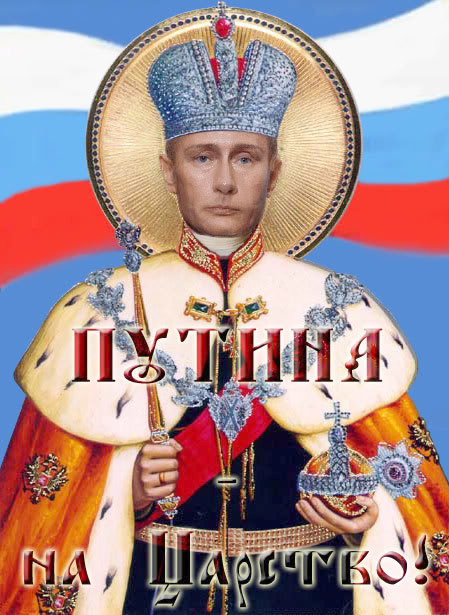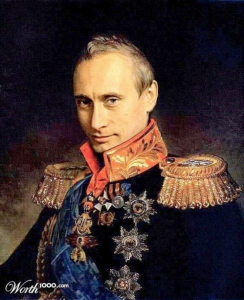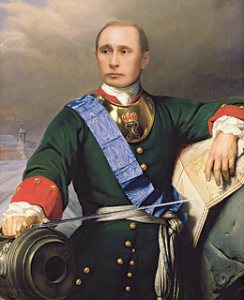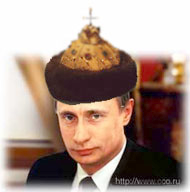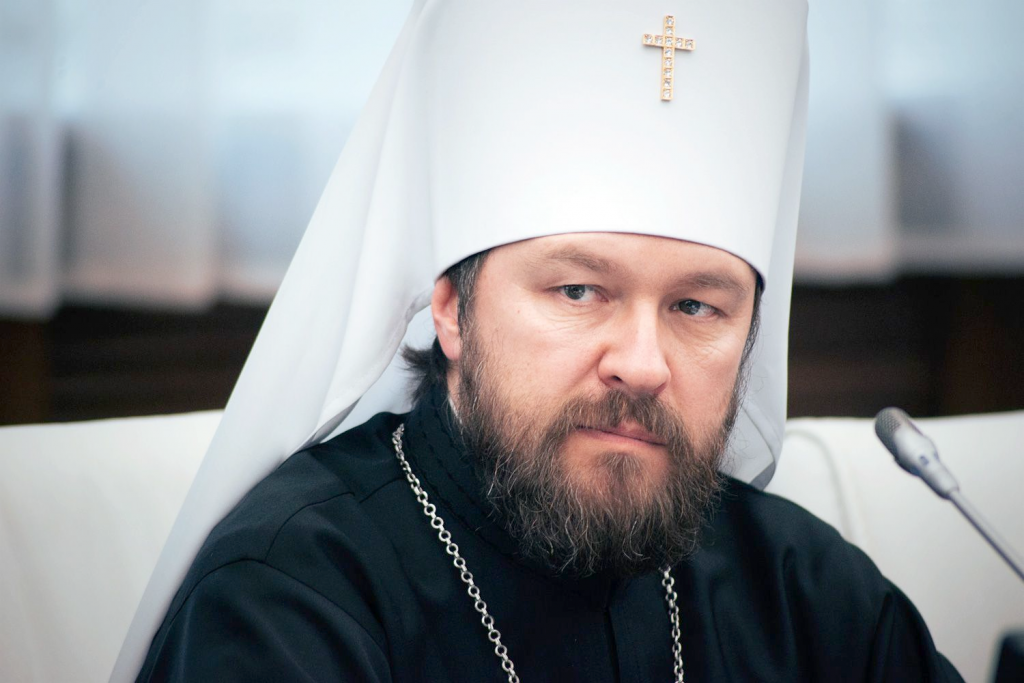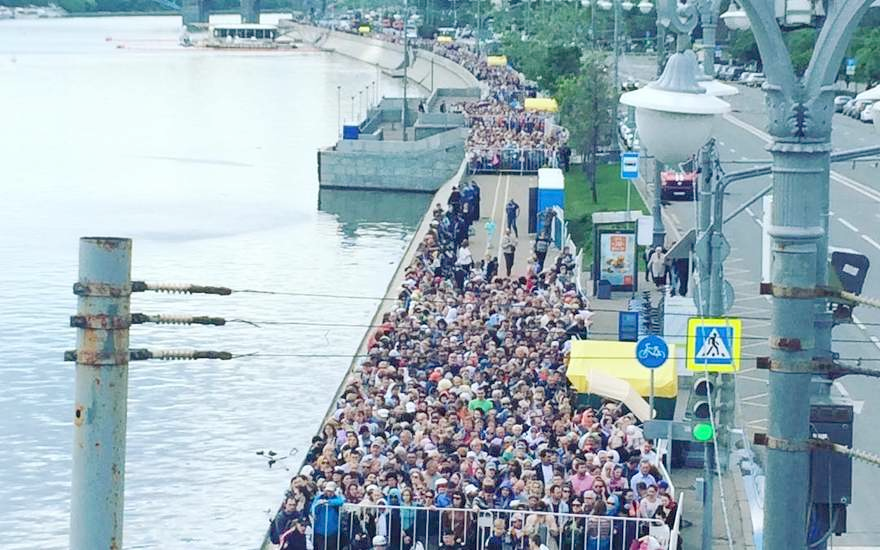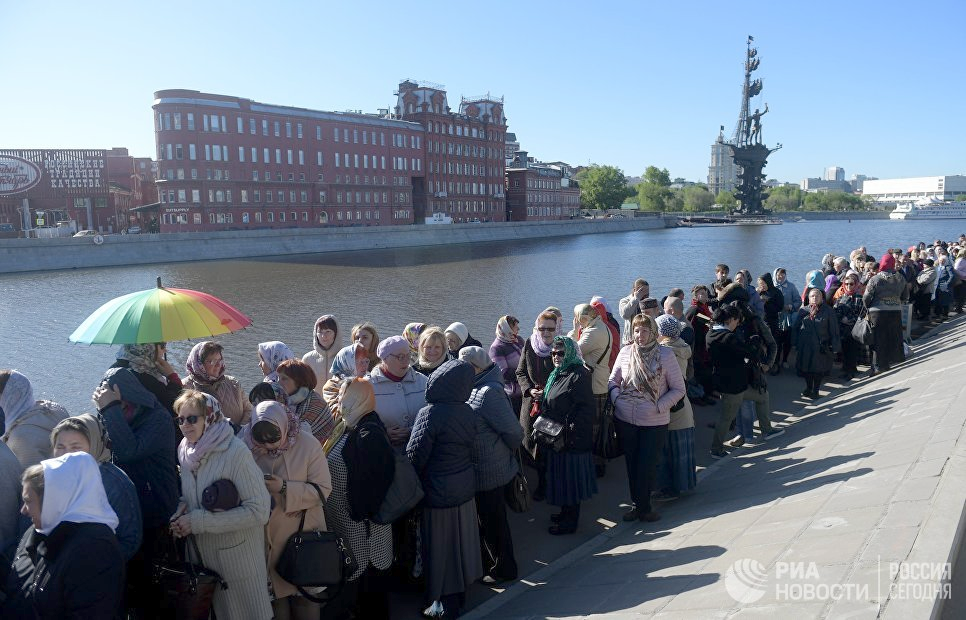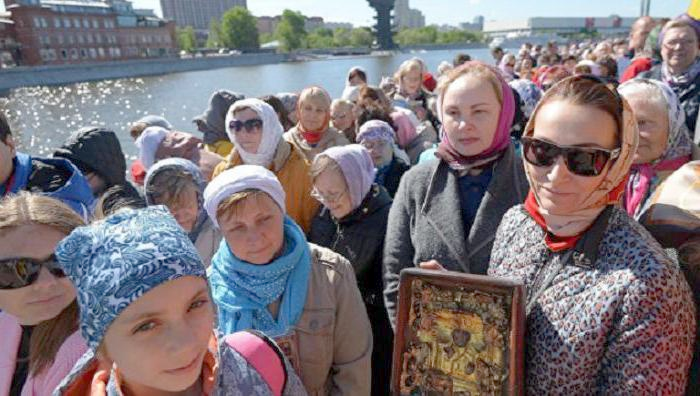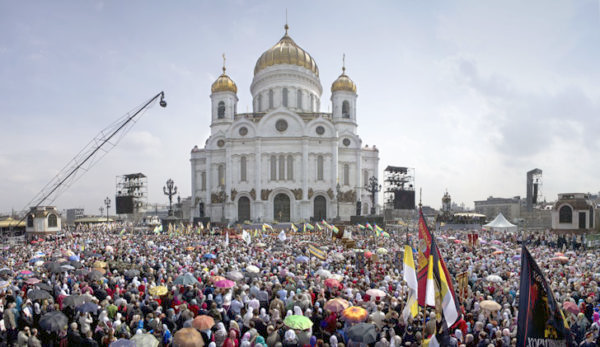This poster, picked up from Russian Internet, calls for “Putin for Tzar”. Is it just a kind of a joke? There are a lot of similar images in Russian Internet.
This week this question became one of the most discussed in the Russian media.
Writers and journalists had been giving Putin the nickname “Tsar” for a long time. The most popular American book about Putin, written by the former New York Times Moscow bureau chief Steven Lee Myers, is entitled “The New Tsar: The Rise and Reign of Vladimir Putin”
A couple of other examples: The New York Times article by Thomas L. Friedman was entitled “Czar Putin’s Next Moves”. The article by Peter Eltsov in Politico Magazine was entitled “Let Czar Putin Overextend Himself”.
Of course, all these writers were speaking metaphorically. They didn’t consider the possibility of the real, literal coronation of the Russian President.
This month the possibility was discussed in Russia very seriously.
Speaking on the official Russian government TV channel “Russia”, Metropolitan Hilarion, the chairman of the Patriarchate’s Department of External Church Relations, one of the most prominent and popular representatives of the Russian Orthodox Church, a noted theologian, church historian, and composer, said:
“The monarchic form of government has advantages over elected and has positively proved itself in history… My personal opinion is that a man who is anointed by the clergy is a person who receives not just a mandate from voters for the position for a certain period, but he gets sanction for his reign through the Church from God himself. It is a lifelong mandate until he transfers power to his heir. This, of course, is the form of government that has proven itself in history and which has many advantages over any elected forms of government.”
The public reaction to this statement was unambiguous: everybody concluded that Metropolitan meant Putin. The next year is going to be the presidential election in Russia. Putin can be legally elected just for one more term. How to make him the lifelong ruler of Russia?
In my opinion, the most interesting comment on the Metropolitan’s statement was written by Alexander Prokhanov, a well known writer, author of more than 30 novels and short story collections, one of the most popular journalists in Russia.
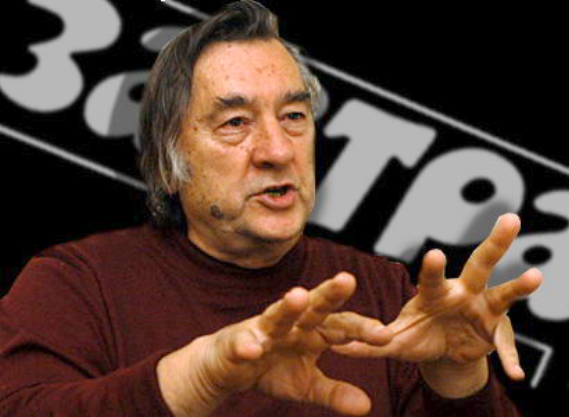
Prokhanov is the editor-in-chief of Russia’s extreme right newspaper Zavtra (“Tomorrow” ), that combines ultra-nationalist and communist views. He aggressively opposed Putin government until the annexation of Crimea. Now Prokhanov is one of the most active Putin’s supporters. He even can be seen standing next to Putin at patriotic public gatherings.
Prokhanov wrote:
“Father Hilarion made a very important statement… And this statement was made not occasionally, not without reasons. It was done just at the right moment, and to the wide public.
“What is behind this statement, and why was it done just now? Throughout the second half of the twentieth century and during this twenty-first century the church was nurturing a monarchical project. The church is a cradle in which the baby of the new Russian monarchy is grown.”
Prokhanov believes that Metropolitan Hilarion had at least two motivations. The first motivation is connected to the fact that after 1991 the Orthodox Church reached such strength, maturity, wealth, it has become such a significant, noticeable, ever-increasing force that it influences everything in Russia. He believes that today everything in Russia, even foreign policy, not to mention internal, is more or less controlled by Church. So now Church is able to fulfill her dream, to bring to life her most dear project.
Prokhanov pays special attention to one of the recent events: bringing the relics of Nicholas the Savior from Italy to the Cathedral of Christ the Savior in Moscow. To worship these relics hundreds of thousands of Russians came to Moscow from everywhere. They are spending many days in the endless lines, in the pouring rain, and in the cold. By Prokhanov’s opinion, this pilgrimage, huge, unprecedented, shows that today the Orthodox Church has great opportunities. That all these people, standing under the umbrellas in the rain along the embankment of the Moscow River, in a sense are monarchists, they profess the ecclesiastical dream of monarchy.
Prochanov also speaks about the second motivation of Metropolitan’s speech, motivation connected to the coming presidential election.
He writes in his typical high poetical style:
“Who can become the herald of the new Russian dynasty? It cannot be an accidental person. It cannot just be a representative of some noble family, or a distinguished family, or today’s elite, or someone whom the Patriarch finger will point to. It must be a special person, marked with a special sign, a mystery. And such a person is Vladimir Putin.
“In one of his messages to the Federal Assembly, he said that with the return of the Crimea to Russia, the sacred center of Russian statehood, of the Russian government, had returned to Russia. He had in mind Chersonese (a town in Crimea), where the baptism of Ancient Russ took place. And this magical miraculous act, when the light of Orthodoxy poured through Prince Vladimir into all the vast spaces: first from the Carpathians to the Urals, and then further beyond the Urals to the Pacific Ocean – this mystical act transferred Christ’s holiness to the Russian statehood. And the Crimea returned to Russia by Putin, has transferred this holiness to the very center of Putin’s power, Putin’s statehood. Because by this act – in some vague and none-dogmatic sense – Putin carried in his hands the source of mysterious mystical light to Russia, to the Kremlin, to his office, to his palaces. He was chosen for this purpose. He confirmed this election. And he became an anointed in a very special form. He was anointed not by Patriarch, his anointing took place, not in the Assumption Cathedral, his wedding to the kingdom was accomplished not at the confluence of the heads of Church. It happened in a mysterious mystical way when the Crimean Chersonese source of light had returned to Russia in his hands. And he stood up with this torch, which illuminates him with a mysterious light. Therefore, in circles close to the patriarchate, in circles dreaming of monarchy and aware of the complexity of the restoration of monarchy in Russia, the name of the current President Vladimir Putin as the possible first Russian monarch of the Putin Dynasty is increasingly called.”
The discussion in Russian media, triggered by the statement of Metropolitan Hilarion, is going on. A popular political commentator Stanislav Belkovsky, known as a democrat, unexpectedly admitted that he himself adheres to monarchical views, and he considers the words of Metropolitan Hilarion about “monarchy… reconciled with Patriarch’s enthusiasm.”
The representative of the Romanov Family Association in Russia Ivan Artsishevsky was surprised at the talk about monarchism by the representatives of the Russian Orthodox Church, and the professor of the St. Petersburg Theological Academy, Archpriest George Mitrofanov, pointed to the danger of attempts to restore the monarchy in modern Russia. Historian Sergei Vivatenko supported the opinion of the advantages of monarchism.
The soberest, in my opinion, comment was made by the leader of the Russian Monarchist Party Anton Bakov. He pointed out that there is no need to ask society about the monarchy, because one person will, most likely, make this decision anyway.

